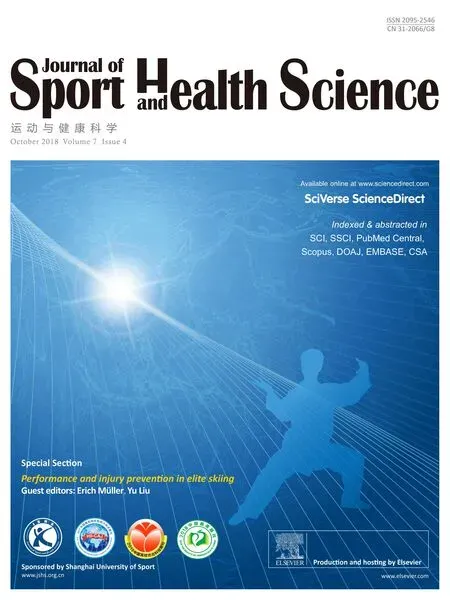Effects of Rhodiola rosea supplementation on mental performance,physical capacity,and oxidative stress biomarkers in healthy men
2018-11-30EwwkoJerzySdowskiBrrugoekDriuszGierzukBenedyktOpszowskiIgorCieliski
Ew Jówko*,Jerzy Sdowski,Brr Długoł˛ekDriusz Gierzuk,Benedykt Opszowski,Igor Cieśliński
a Department of Physiology and Biochemistry,Faculty of Physical Education and Sport in Biala Podlaska,Józef Piłsudski University of Physical Education in Warsaw,Biala Podlaska 21-500,Poland
bFaculty of Physical Education and Sport in Biala Podlaska,Józef Piłsudski University of Physical Education in Warsaw,Biala Podlaska 21-500,Poland
cDepartment of Endocrinology,Institute of Sport in Warsaw,Warsaw 01-982,Poland
Abstract Purpose:The objective of this study was to investigate the effects of chronic Rhodiola rosea(R.rosea)supplementation on mental and physical performance,as well as hormonal and oxidative stress biomarkers.Methods:Twenty-six healthy male students received either R.rosea extract(600mg/day;RR)or placebo(PL)in a randomized double-blind trial.Prior to supplementation(Term I)and following 4 weeks of supplementation(Term II),the students underwent psychomotor tests for simple and choice reaction time,included in the Vienna Test System.Also,the subjects performed VO2peaktest.Blood samples were obtained before and after the test to measure the hormonal profile(cortisol,testosterone,and growth hormone),as well as the biomarkers of oxidative stress(lipid hydroperoxides,total antioxidant capacity,and superoxide dismutase)and muscle damage(creatine kinase).Results:R.rosea ingestion shortened reaction time and total response time.Moreover,a greater relative increase in the number of correct responses was observed in RR group as compared to the PL group.No changes in endurance exercise capacity and hormonal profile were observed after R.rosea ingestion.R.rosea ingestion raised plasma total antioxidant capacity.It did not,however,affect other measured parameters.Conclusion:Chronic R.rosea ingestion does not affect physical performance,but can improve the results of some psychomotor tests(simple and choice reaction time)in young,healthy,and physically active men.The improvements in mental performance,however,at least in our study,seem not to be related to changes in cortisol release or antioxidant activity of R.rosea extract.Thus,the specific mechanisms responsible for these effects still need to be elucidated.
Keywords:Cortisol;Endurance capacity;Incremental exercise;Men;Oxidative stress;Simple and choice reaction time;Testosterone
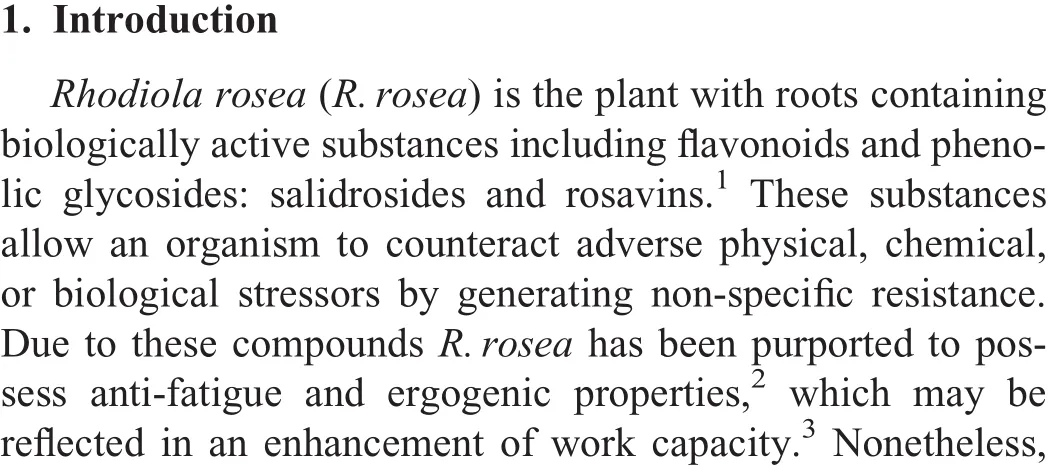
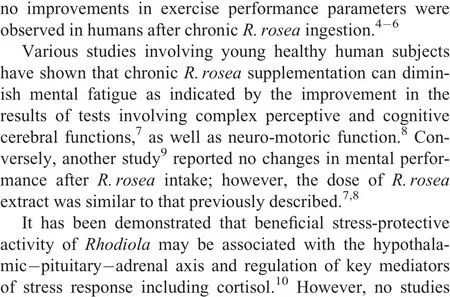
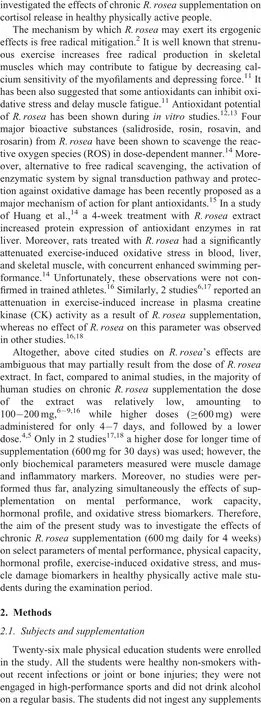
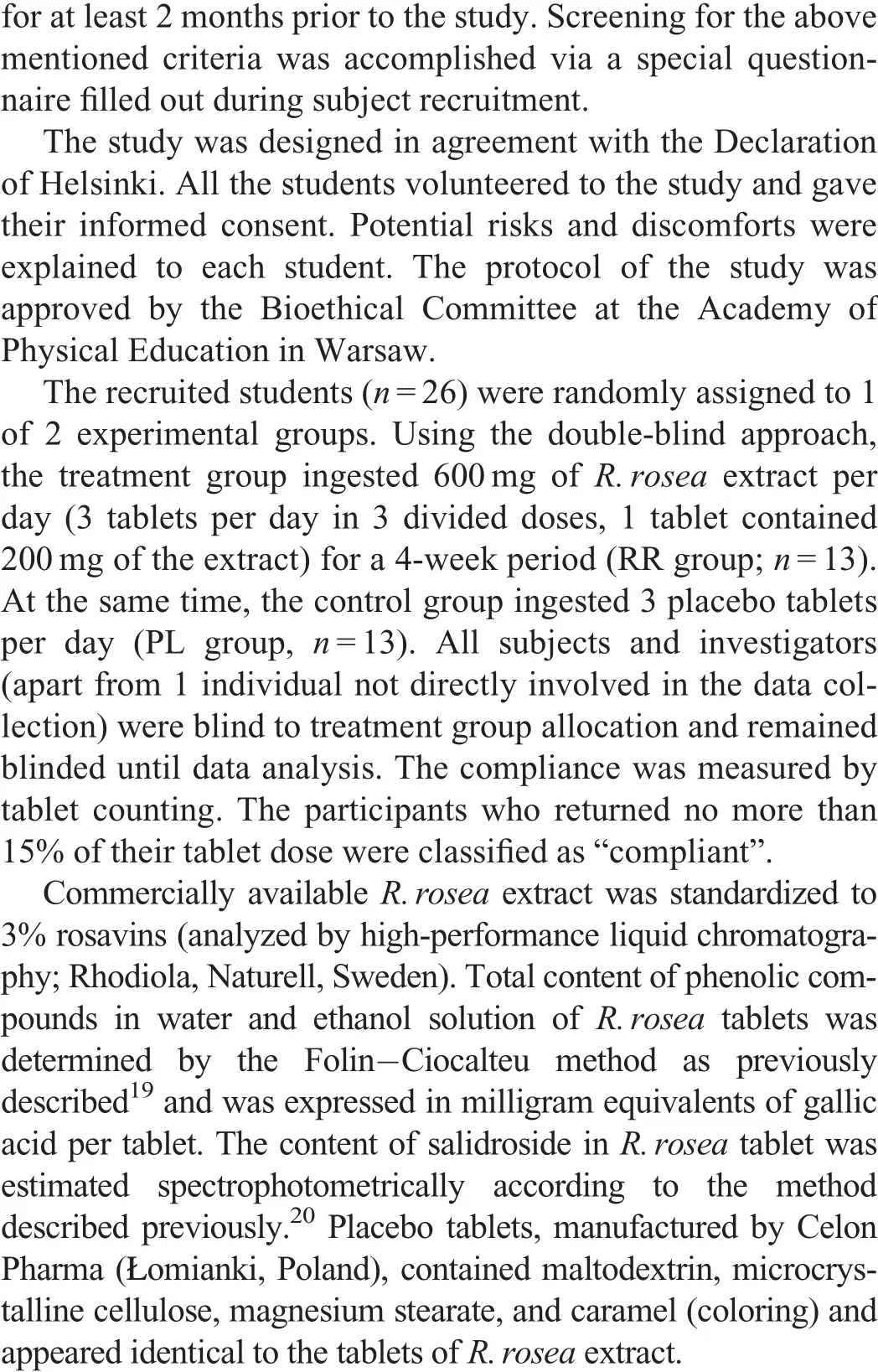
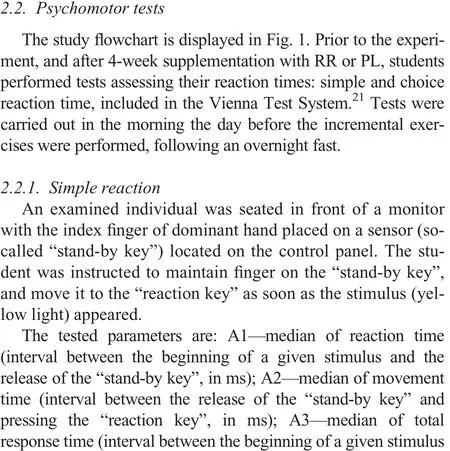
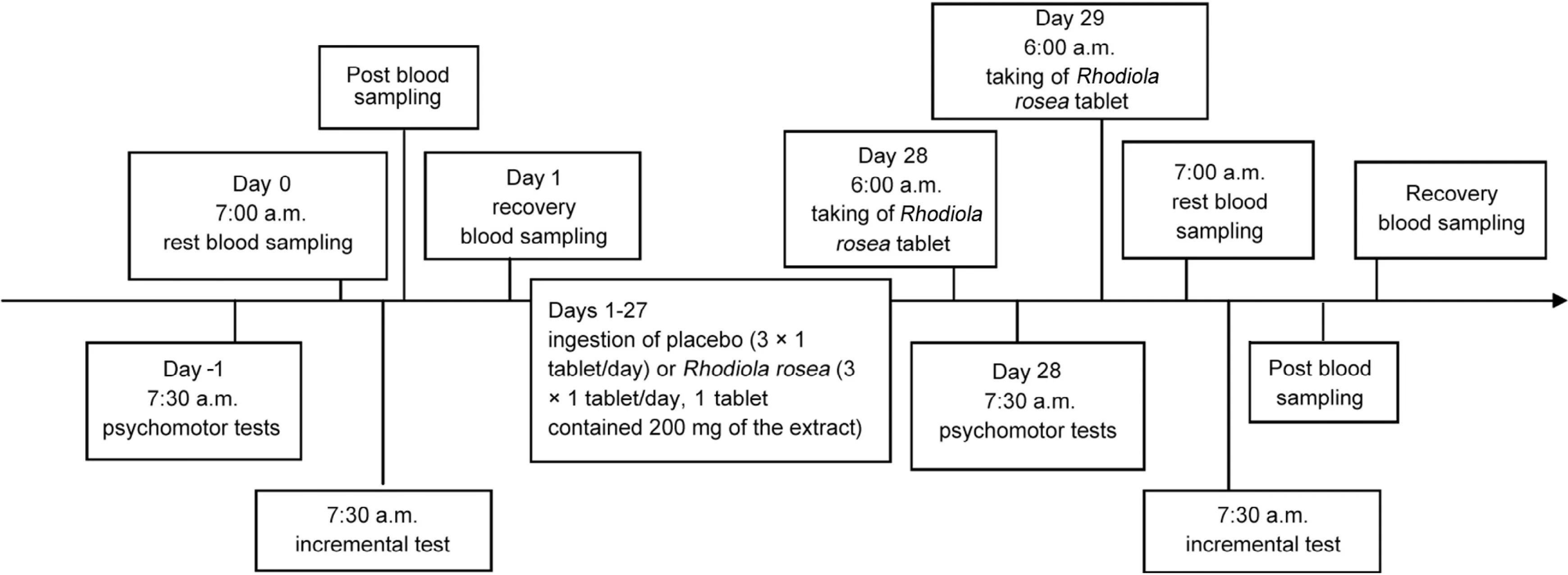
Fig.1.Study flowchart.Rest:pre-exercise blood sampling;post:3min post-exercise blood sampling;recovery:24-h recovery blood sampling.

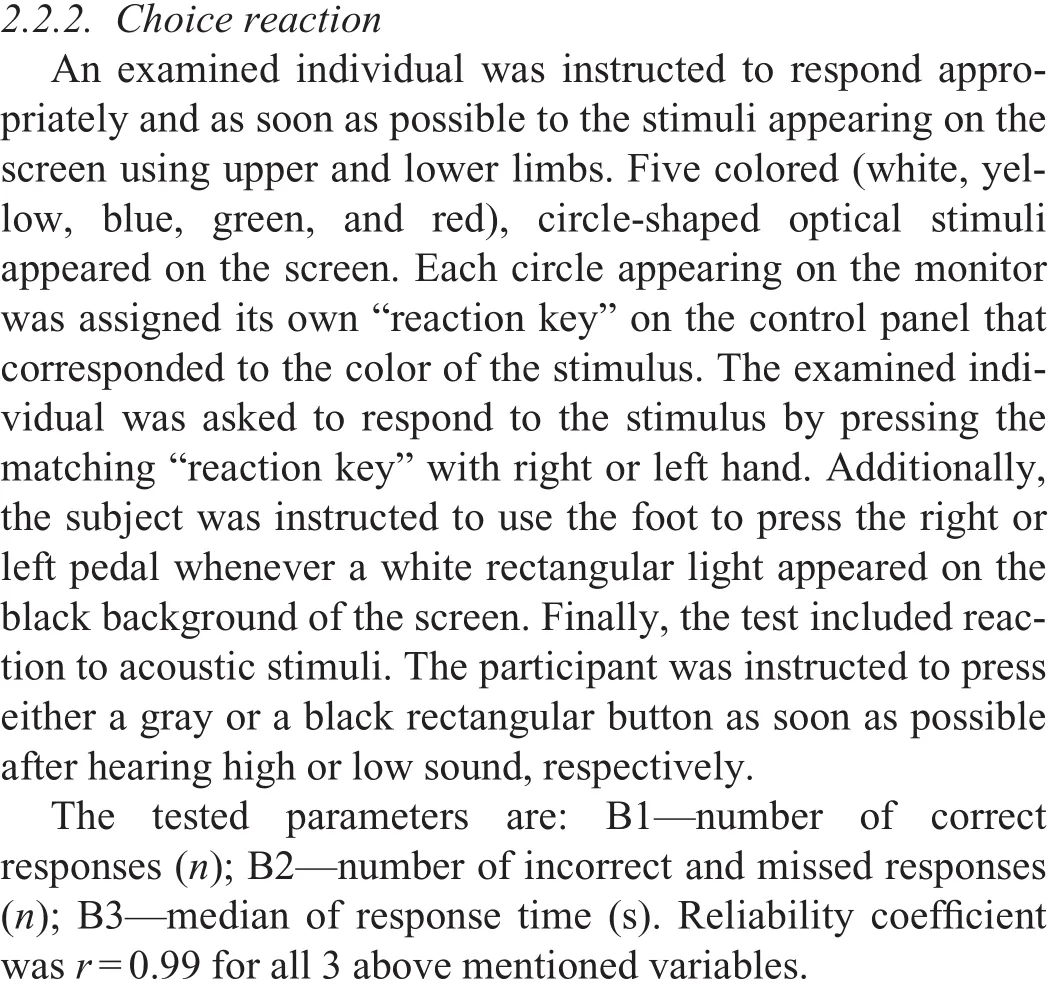
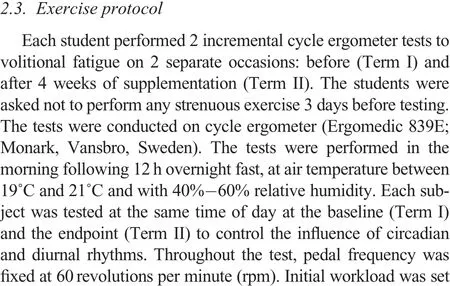
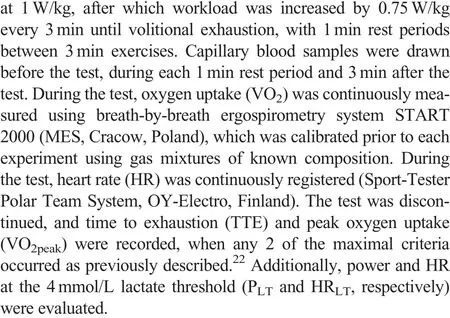
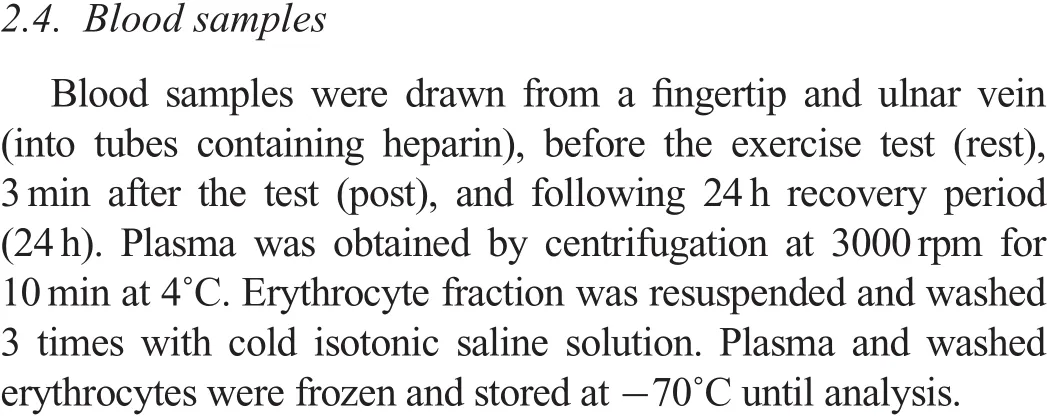
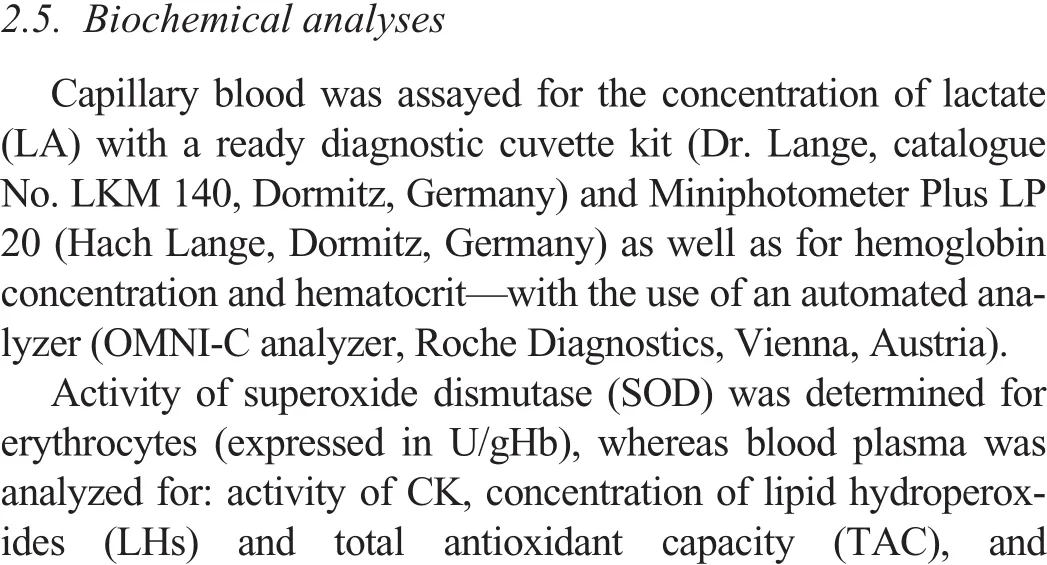
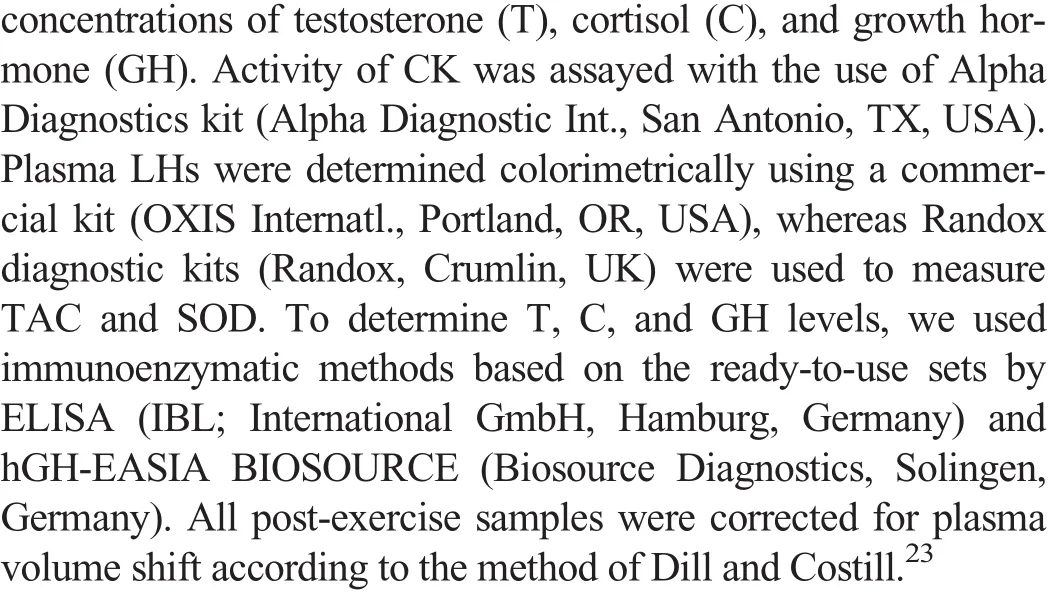
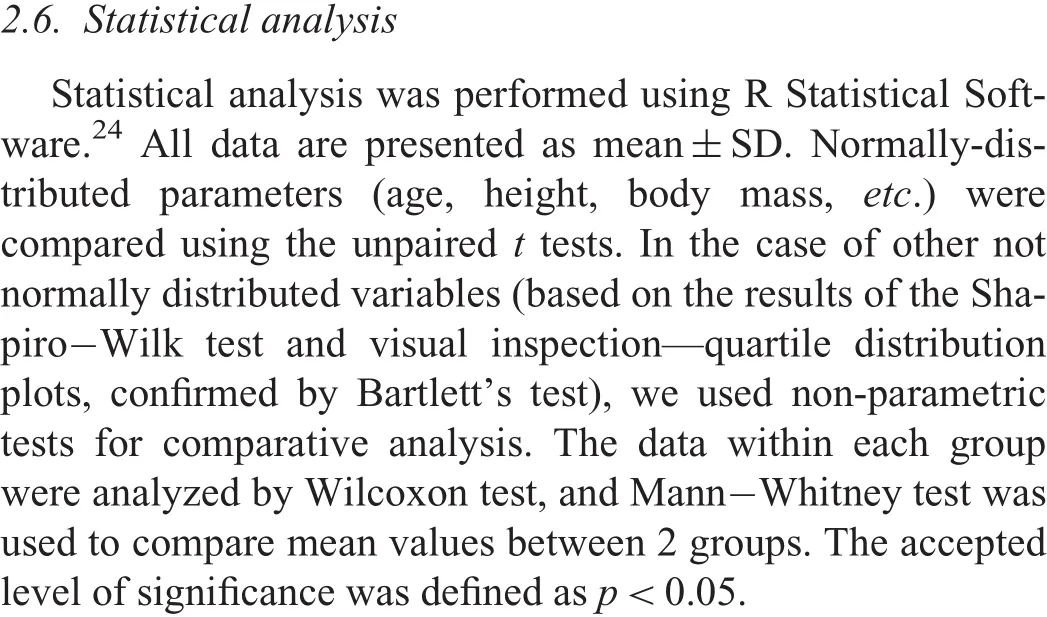

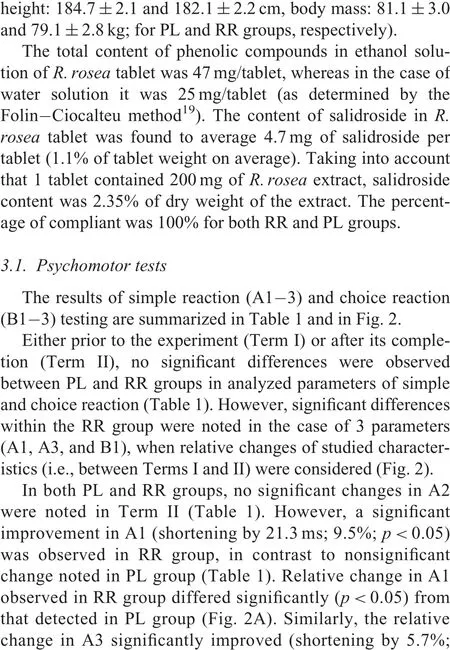
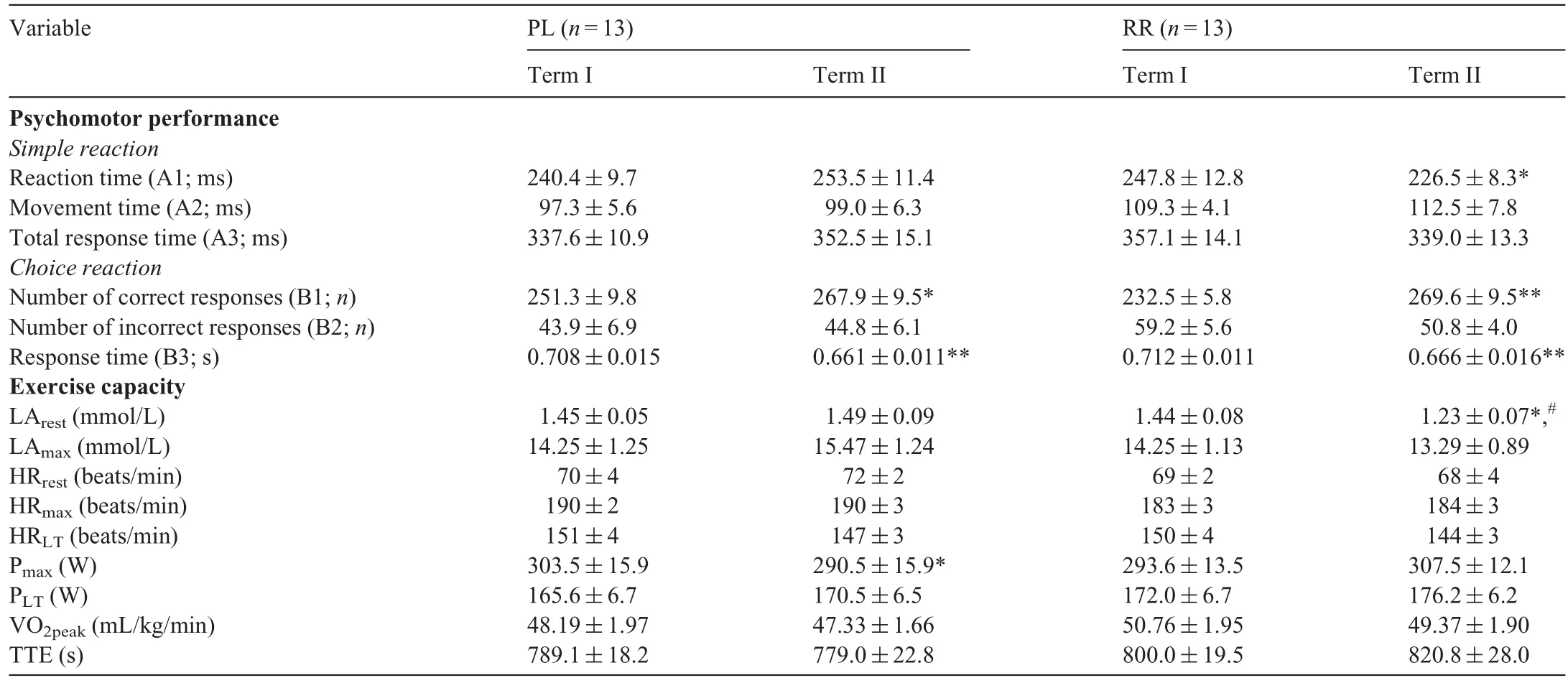
Table1 Psychomotor performance and exercise parameters determined before(Term I)and after(Term II)4-week supplementation with PL or RR(mean±SD).
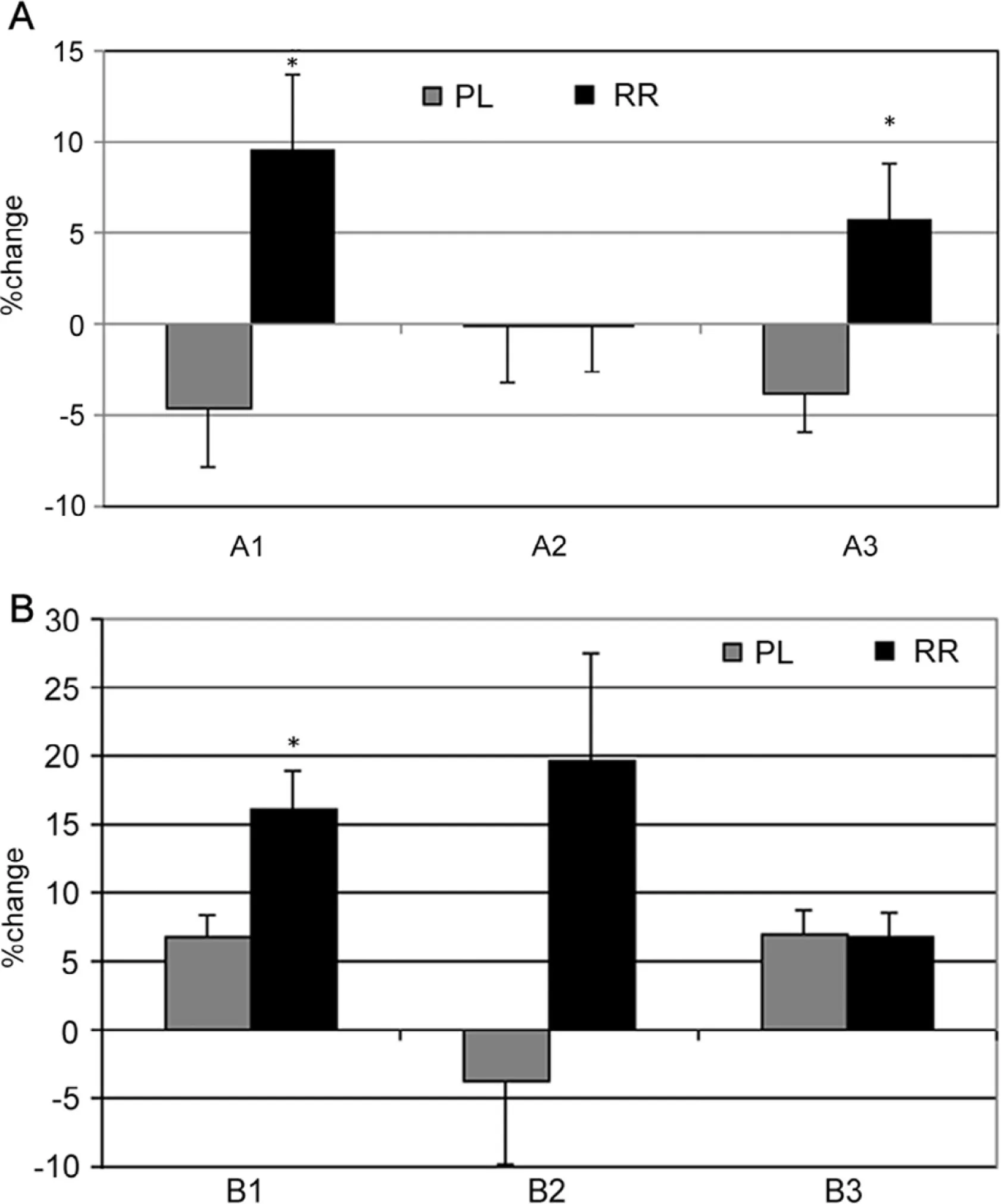
Fig.2.Relative(%)change(mean±SD)in the simple(A)and choice(B)reaction parameters evaluated by the Vienna Test System,after 4-week supplementation with placebo(PL)or Rhodiola rosea(RR).*p<0.05,compared with PL group,Mann-Whitney test.A1=reaction time;A2=movement reaction;A3=total response time;B1=number of correct responses;B2=number of incorrect responses;B3=median of response time.
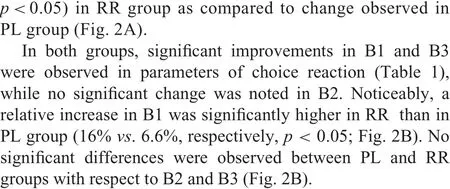
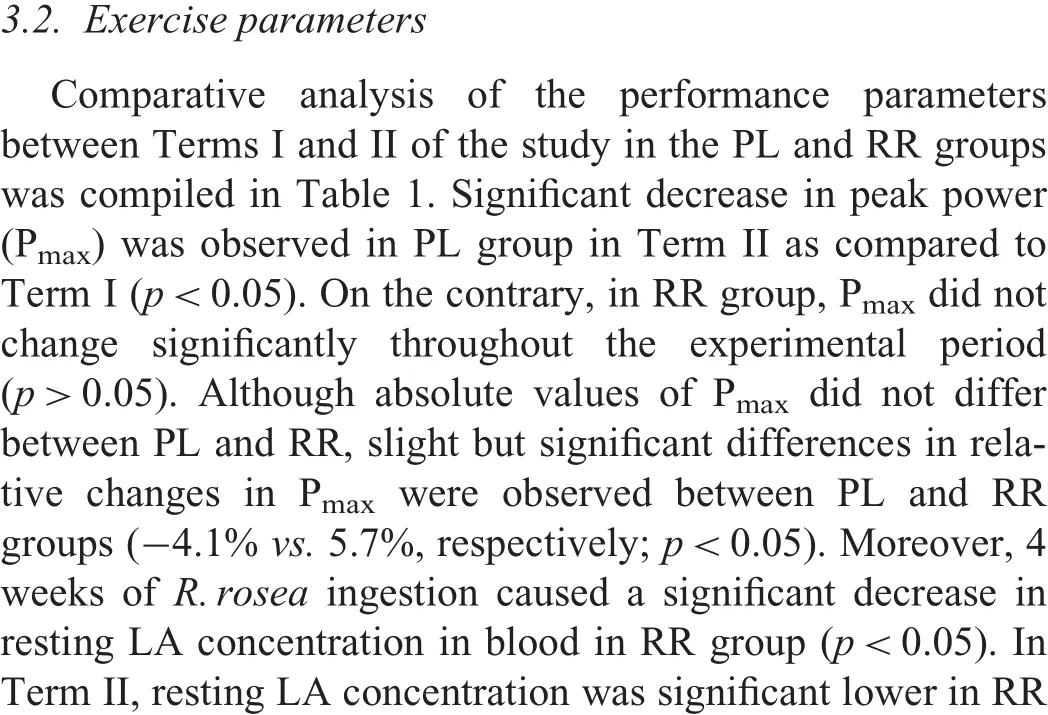
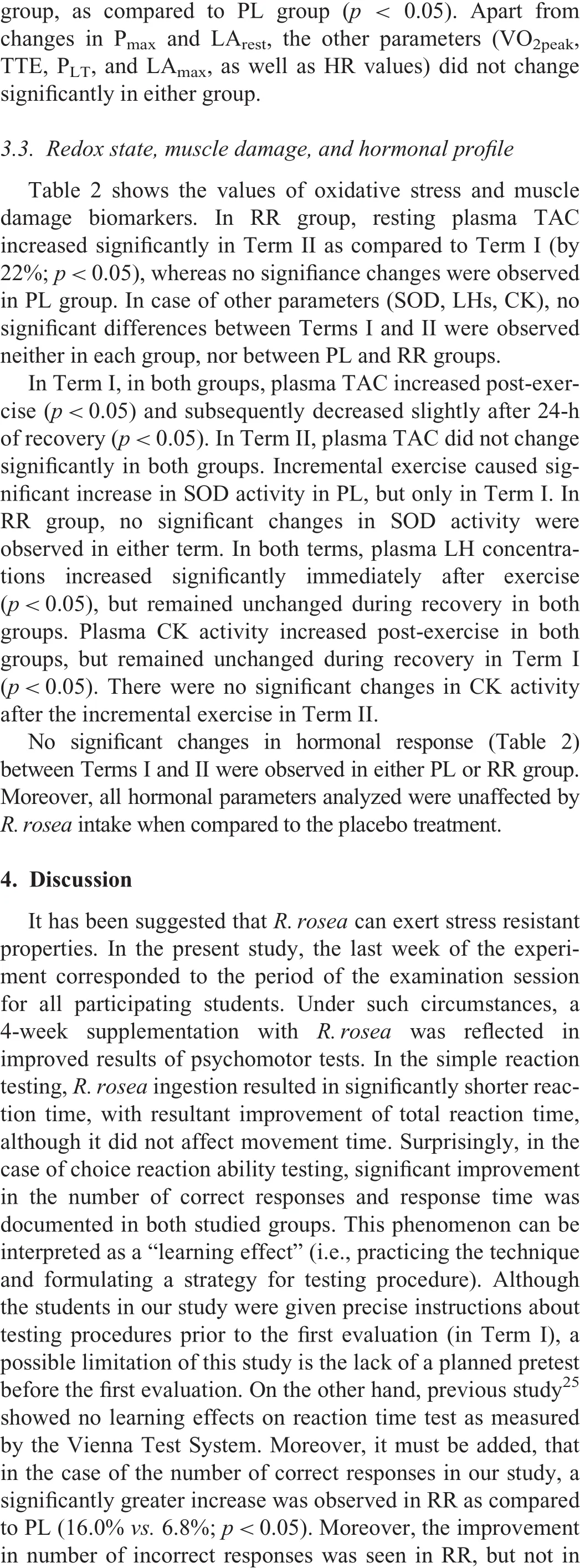
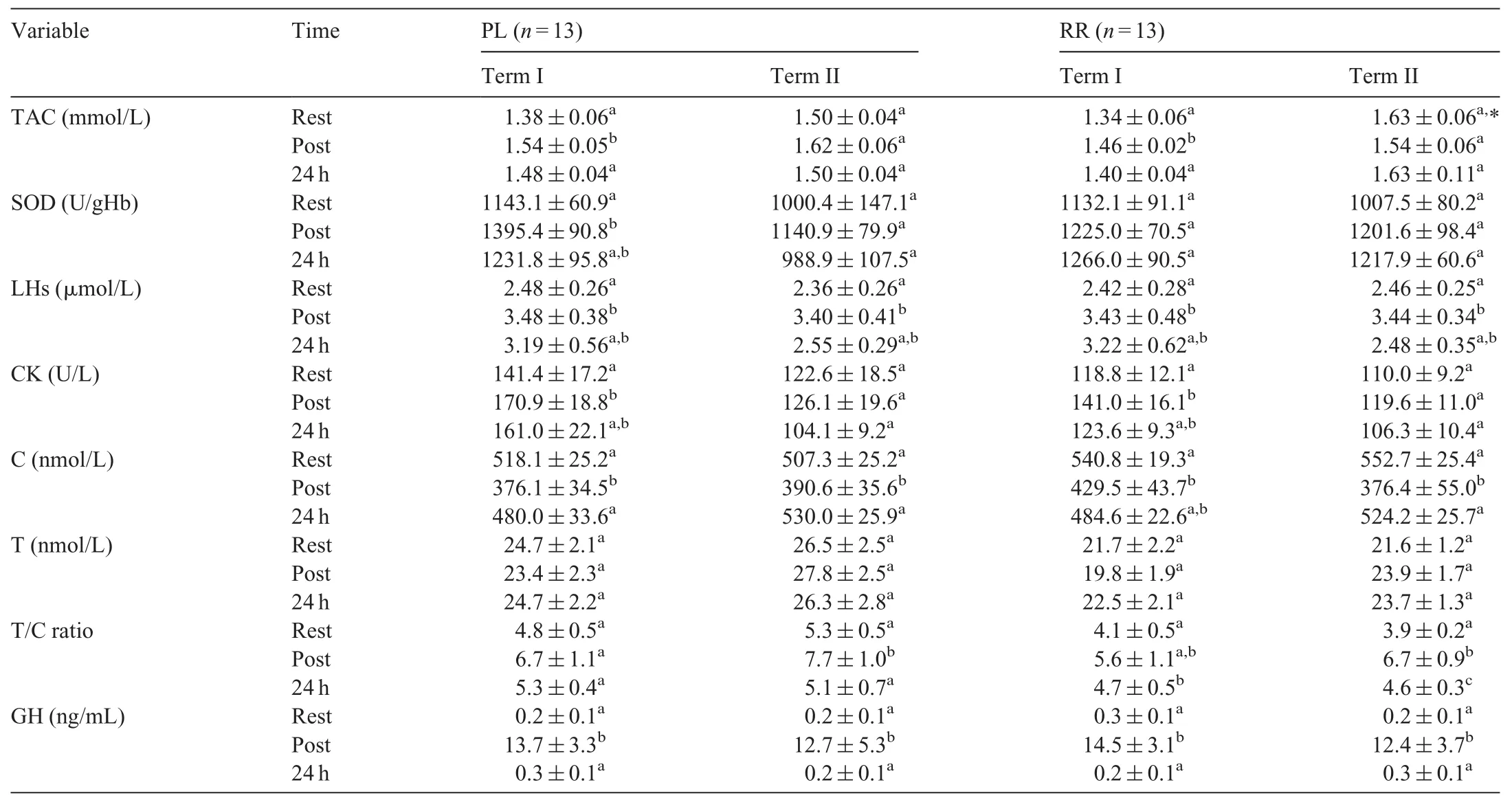
Table2 Blood parameters of oxidative stress,muscle damage,and hormonal profile determined at rest(before incremental exercise),3min post-exercise,and following 24-h recovery,before(Term I)and after(Term II)4-week supplementation with PL or RR(mean±SD).
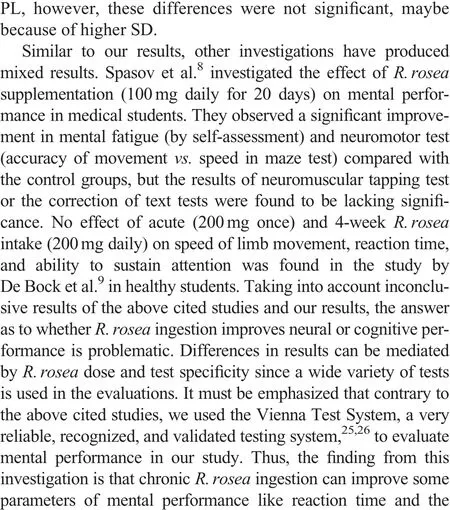
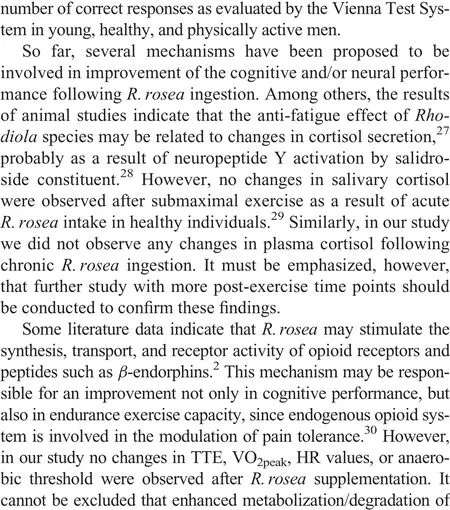
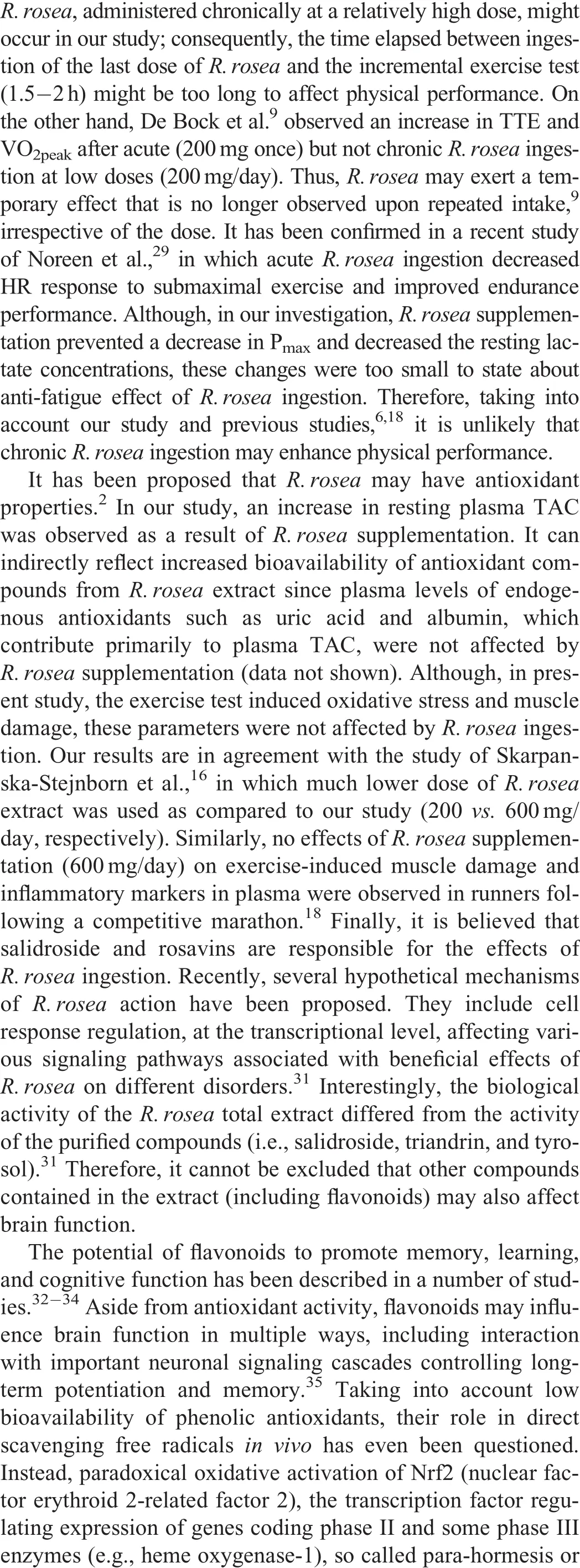
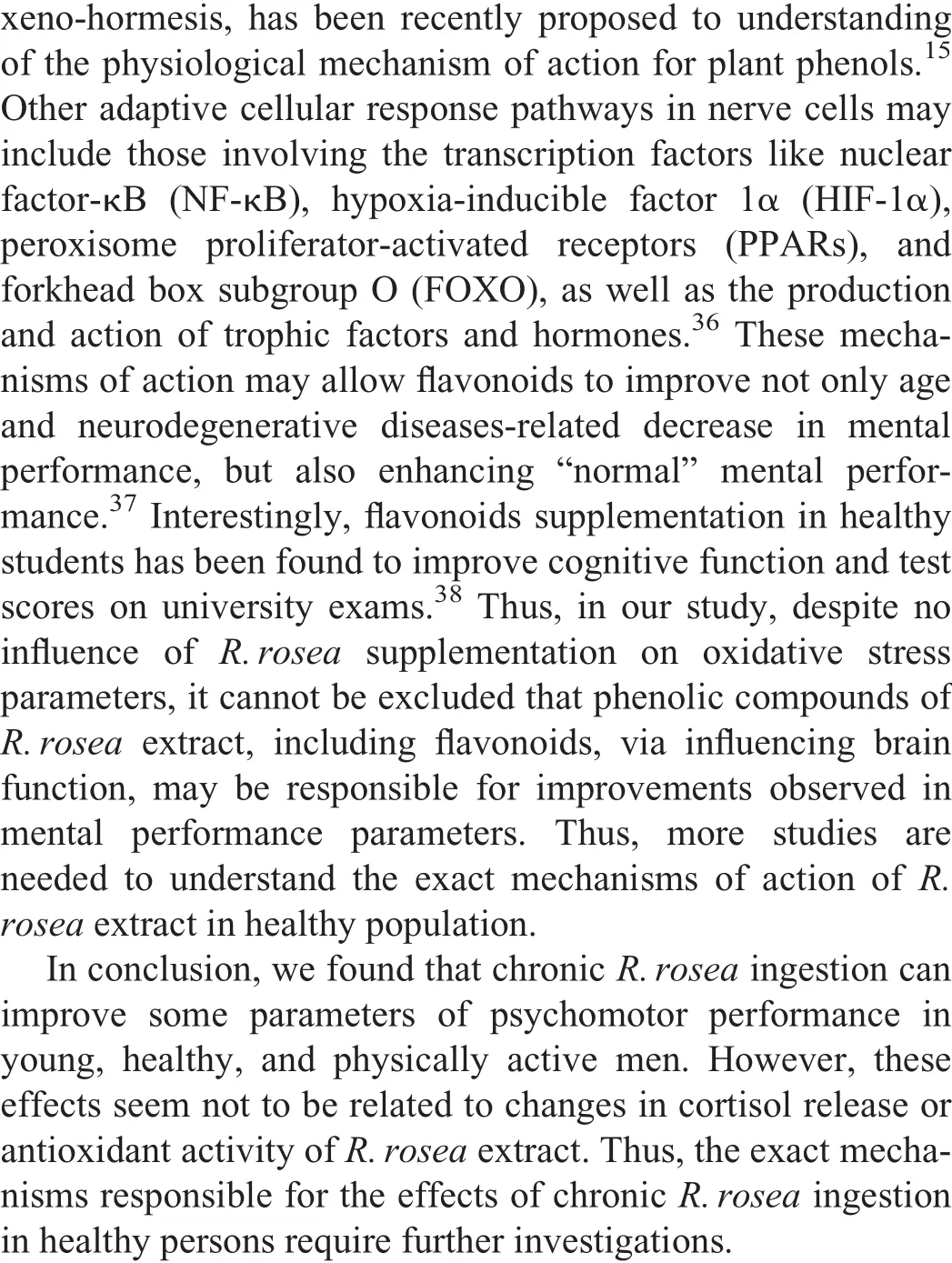

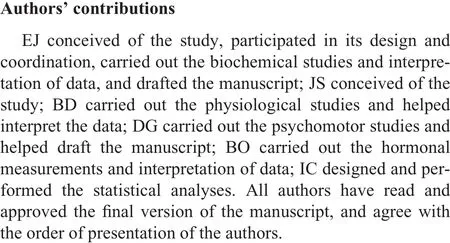


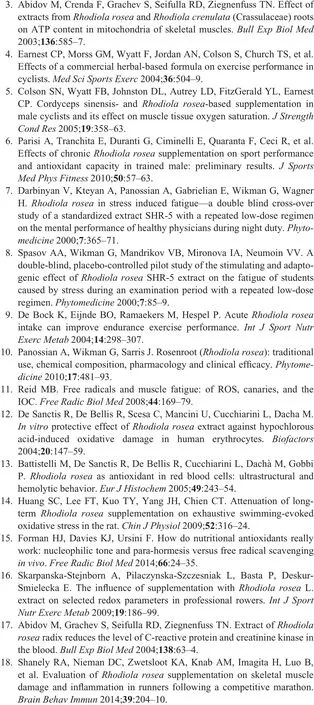
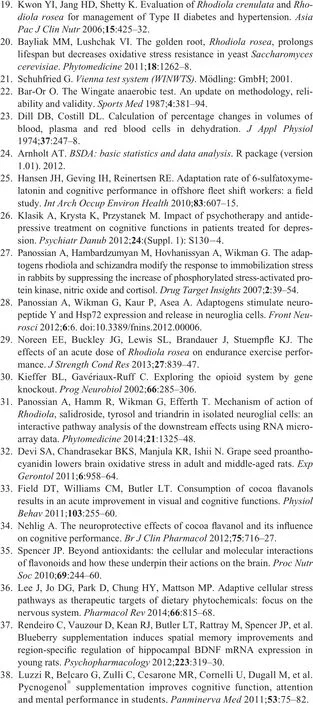
杂志排行
Journal of Sport and Health Science的其它文章
- Sport participation and vigilance in children:In fluence of different sport expertise
- Sedentary behavior and physical activity predicting depressive symptoms in adolescents beyond attributes of health-related physical fitness
- Intention and automaticity toward physical and sedentary screen-based leisure activities in adolescents:A profile perspective
- he effects of oral smokeless tobacco administration on endurance performance
- Assessing effect of interaction between the FTO A/T polymorphism(rs9939609)and physical activity on obesity-related traits
- he effect of sex and performance level on pacing in cross-country skiers:Vasaloppet 2004-2017
